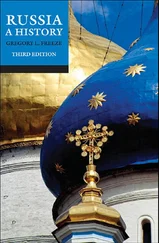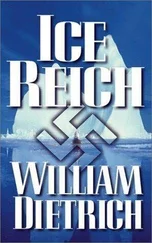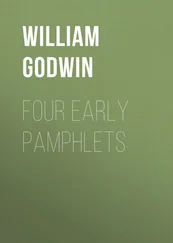William Dixon - Free Russia
Здесь есть возможность читать онлайн «William Dixon - Free Russia» — ознакомительный отрывок электронной книги совершенно бесплатно, а после прочтения отрывка купить полную версию. В некоторых случаях можно слушать аудио, скачать через торрент в формате fb2 и присутствует краткое содержание. Жанр: foreign_antique, foreign_prose, на английском языке. Описание произведения, (предисловие) а так же отзывы посетителей доступны на портале библиотеки ЛибКат.
- Название:Free Russia
- Автор:
- Жанр:
- Год:неизвестен
- ISBN:нет данных
- Рейтинг книги:3 / 5. Голосов: 1
-
Избранное:Добавить в избранное
- Отзывы:
-
Ваша оценка:
- 60
- 1
- 2
- 3
- 4
- 5
Free Russia: краткое содержание, описание и аннотация
Предлагаем к чтению аннотацию, описание, краткое содержание или предисловие (зависит от того, что написал сам автор книги «Free Russia»). Если вы не нашли необходимую информацию о книге — напишите в комментариях, мы постараемся отыскать её.
Free Russia — читать онлайн ознакомительный отрывок
Ниже представлен текст книги, разбитый по страницам. Система сохранения места последней прочитанной страницы, позволяет с удобством читать онлайн бесплатно книгу «Free Russia», без необходимости каждый раз заново искать на чём Вы остановились. Поставьте закладку, и сможете в любой момент перейти на страницу, на которой закончили чтение.
Интервал:
Закладка:
These are the impostors – rank and racy impostors – yet some of these men and women who pass you on the roads are pious and devoted souls, wandering about the earth in search of what they fancy is a higher good. A few may be rich; but riches are dust in the eyes of God; and in seeking after His glory they dare not trust to an arm of flesh. Equally with his meekest brother, the rich pilgrim must take his staff, and march on foot, joining his brethren in their devotions and confessions, in their matins and their evening song.
Most of these pilgrim bands have to beg their crust of black bread, their sup of sour quass, from people as poor as themselves in money and almost as rich in the gifts of faith. Like the hadji going to Mecca, a pilgrim coming to Archangel, on his way to the shrines, is a holy man, with something of the character of a pope. The peasant, who thinks the crossing of his door-step by the stranger brings him blessings, not only lodges him by night, but helps him on the road by day. A pilgrim is a sacred being in rustic eyes. If his elder would let him go, he would join the band; but if he may not wend in person, he will go in spirit, to the shrine. A prayer shall be said in his name by the monks, and he will send his last kopeck in payment for that prayer by the hand of this ragged pilgrim, confident that the fellow would rather die than abuse his trust.
The men who escape from Siberian mines put on the pilgrim frock and seize the pilgrim staff. Thus robed and armed, a man may get from Perm to Archangel with little risk, even though his flesh may be burnt and his papers forged. Pietrowski has told the story of his flight, and many such tales may be heard on the Dvina praams.
A peasant living in a village near Archangel killed his father in a quarrel, but in such a way that he was not suspected of the crime; and he would never have been brought to justice had not Vanka, a friend and neighbor, been a witness of the deed. Now Vanka was weak and superstitious, and every day as he passed the image of his angel in the street, he felt an inner yearning to tell what he had seen. The murderer, watching him day and night, observed that he prayed very much, and crossed himself very often, as though he were deeply troubled in his mind. On asking what ailed him, he heard to his alarm that Vanka could neither eat nor sleep while that terrible secret lay upon his soul. But what could he do? Nothing; absolutely nothing? Yes; he could threaten to do for him what he had done by accident for a better man. "Listen to me, Vanka," he said, in a resolute tone; "you are a fool; but you would not like to have a knife in your throat, would you?" "God take care of me!" cried Vanka. "Mind me, then," said the murderer: "if you prate, I will have your blood." Vanka was so much frightened that he went to the police that very night and told them all he knew; on which his friend was arrested, brought to trial in Archangel, and condemned to labor on the public works for life. Vanka was the main witness, and on his evidence the judge pronounced his sentence. Then a scene arose in court which those who saw it say they shall not forget. The man in the dock was bold and calm, while Vanka, his accuser, trembled from crown to sole; and when the sentence of perpetual exile to the mines was read, the murderer turned to his friend and said, in a clear, firm voice, "Vanka! remember my words. To-day is yours: I am going to Siberia; but I shall come to your house again, and then I shall take your life. You know!" Years went by, and the threat, forgotten by every one else, was only remembered by Vanka, who, knowing his old friend too well, expected each passing night would be his last on earth. At length the tragedy came in a ghastly form. Vanka was found dead in his bed; his throat was cut from ear to ear; and in a drinking-den close by lay his murderer, snoring in his cups. He had made his escape from the mines; he had traversed the whole length of Asiatic Russia; he had climbed the Ural chain, and walked through the snow and ice of Perm, travelling in a pilgrim's garb, and singing the pilgrim's song, until he came to the suburbs of Archangel, where he slipped away from his raft, hid himself in the wood until nightfall, crept to the familiar shed and drew his knife across Vanka's throat.
No one suspects a pilgrim. With a staff in his hand, a sheepskin on his back, a water-bottle at his belt, and a clot of bass tied loosely round his feet, a peasant of the Ural Mountains quits his home, and makes no merit of trudging his two or three thousand miles. On the river he takes an oar, on the wayside he endures with incredible fortitude the burning sun by day, the biting frost at night. In Moscow I heard the history of three sisters, born in that city, who have taken up the pilgrim's staff for life. They are clever women, milliners by trade, and much employed by ladies of high rank. If they could only rest in their shop, they might live in comfort, and end their days in peace. But the religious and nomadic passions of their race are strong upon them. Every year they go to Kief, Solovetsk, and Jerusalem; and the journey occupies them forty-nine weeks. Every year they spend three weeks at home, and then set out again – alone, on foot – to seek, in winter snow and summer heat, salvation for their souls. No force on earth, save that which drives an Arab across the desert, and a Mormon across the prairie, is like this force.
In the hope of seeing these pilgrim bands, of going with them to Solovetsk, and studying them on the spot, as also of inquiring about the convent spectre, and solving the mystery which for many years past connected that spectre with the Romanof family, I rounded the North Cape, and my regret is deep, when landing at Archangel, to hear that the last pilgrim band has sailed, and that no more boats will cross the Frozen Sea until the ice breaks up in May next year.
CHAPTER VII.
FATHER JOHN
Stung by this news of the pilgrim-boat having sailed, and haunting, unquietly, the Pilgrim's Court in the upper town, I notice a good many sheepskin garbs, with wearers of the burnt and hungry sort you meet in all seasons on the Syrian roads. They are exceedingly devout, and even in their rags and filth they have a certain grace of aspect and of mien. A pious purpose seems to inform their gestures and their speech. Yon poor old man going home with his morsel of dried fish has the air of an Arab sheikh. These pilgrims, like myself, have been detained by storms; and a hope shoots up into my heart that as the monks must either send away all these thirsty souls unslaked, or lodge and feed them for several months, they may yet contrive to send a boat.
A very small monk, not five feet high, with girl-like hair and rippling beard, which parts and flows out wildly in the wind, is standing in the gateway of the Pilgrim's Court; and hardly knowing how it might be best to put the matter in my feeble Russ, I ask him in that tongue where a man should look for the Solovetsk boat.
"English?" inquires the girl-like monk.
"Yes, English," I reply, in some surprise; having never before seen a monk in Russia who could speak in any other tongue than Russ. "The boat," he adds, "has ceased to run, and is now at Solovetsk laid up in dock."
In dock! This dwarf must be a wag; for such a conjunction as monks and docks in a country where you find a quay like that of Solambola is, of course, a joke. "In dock!"
"Oh yes, in dock."
"Then have you a dock in the Holy Isle?"
"A dock – why not? The merchants of Archangel have no docks, you say? Well, that is true; but merchants are not monks. You see, the monks of Solovetsk labor while the merchants of Archangel trade. Slava Bogu! A good monk does his work; no shuffling, and no waste. In London you have docks?"
"Yes, many: but they were not built by monks."
Читать дальшеИнтервал:
Закладка:
Похожие книги на «Free Russia»
Представляем Вашему вниманию похожие книги на «Free Russia» списком для выбора. Мы отобрали схожую по названию и смыслу литературу в надежде предоставить читателям больше вариантов отыскать новые, интересные, ещё непрочитанные произведения.
Обсуждение, отзывы о книге «Free Russia» и просто собственные мнения читателей. Оставьте ваши комментарии, напишите, что Вы думаете о произведении, его смысле или главных героях. Укажите что конкретно понравилось, а что нет, и почему Вы так считаете.











